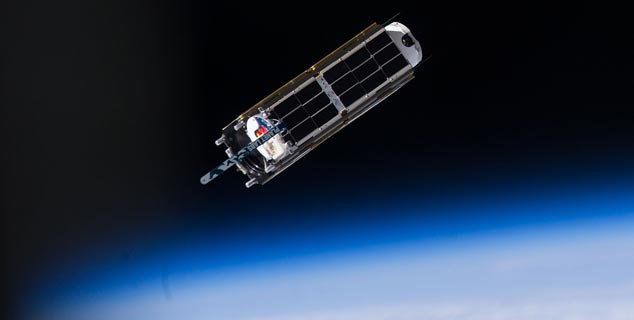
When I interviewed Roger Bootle of Capital Economics a few months ago, we agreed that one of things that makes economic forecasting tricky is the impossibility of knowing what is happening right now. Neither MoneyWeek nor Capital Economics has ever been approached by the statisticians who make up our GDP numbers to fill in the relevant surveys – despite both being fast-growing small businesses.
It was a point backed up in a recent conversation with Lord Lamont: practically none of the economic numbers he worked with when he was chancellor turned out to be worth the paper they were written on. He was under the impression that he was managing the economy through the worst recession in decades. He wasn’t. And, as he points out, if you can’t know the present until it is well in the past, how can you have a hope of forecasting the future?
The good news is that it might be about to get a tiny bit easier – because of shoe-box-sized satellites. Planet Labs, a San Francisco firm set up by ex-Nasa engineers, has says, Bloomberg Businesss, “one of the largest ever imaging fleets aloft”. Each of the 50 satellites orbit the globe every 90 minutes, and together “they can photograph most of the planet every day”.
These are no ordinary photographs. They come in such high resolution that big data software can then be used to the extract proper real-time economic indicators from them.
“Satellite images of activity at 6,000 Chinese factories are being translated into a new manufacturing index. And energy investors will soon be able to access data based on satellite photos of oil tank farms worldwide to know if stocks of crude are rising or falling.”
This is a genuine game-changer. Currently, the US and the UK both rely on surveys of a few thousand businesses (not including MoneyWeek or Capital Economics) to tell them what is going on, and by extension to act as the base for monetary policy. The proper use of photos and big data could lead to a whole new world of economic transparency, and hence a transformation in the way we make policy (hopefully for the better).
At the same time it is producing some interesting information of global significance (one study of night light around the world suggests to a Columbia University professor that global poverty is running at a mere 6% rather than the 30% the World Bank estimates).
Finally, and from our point of view, possibly most excitingly, the satellite data, if properly analysed, really could change the way we invest. The oil data mentioned above is clearly interesting, but Bloomberg also reports that that Rich Abbe of Iroquois Capital Management recently bought stakes in consumer companies such as Chipotle Mexican Grill and JC Penny on the back of reports on the vacancy rates in their car parks from satellite firm Remote Sensing Networks. He also – I suspect wisely, given the potential here – bought a stake in Remote Sensing Networks.
PS We might look at this in more detail in the magazine soon but other start-ups in the sector in the US are Spaceknow and Orbital Insight.